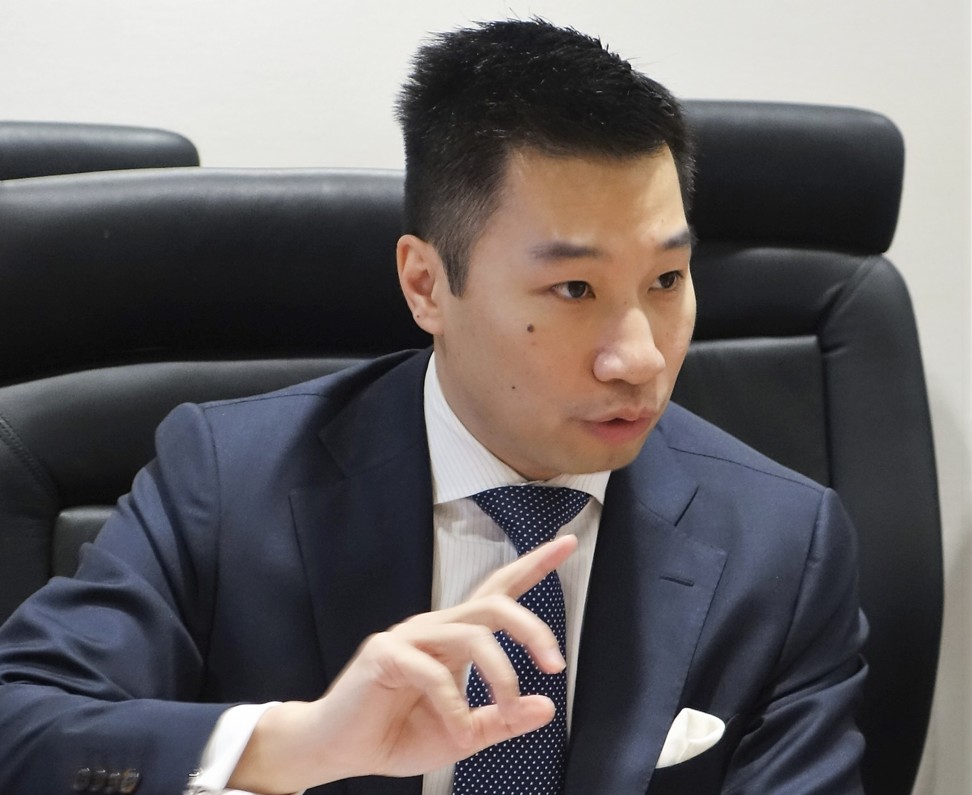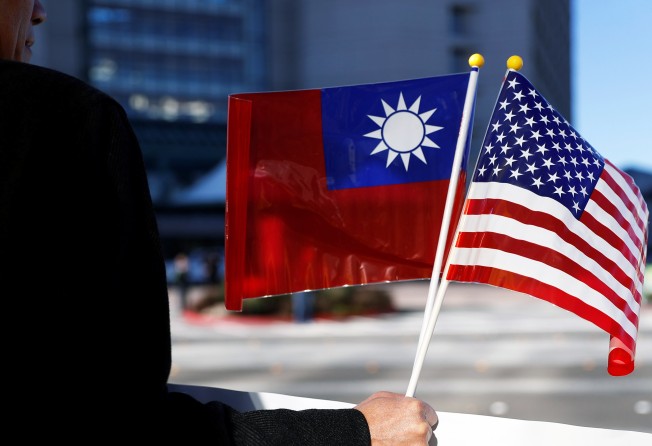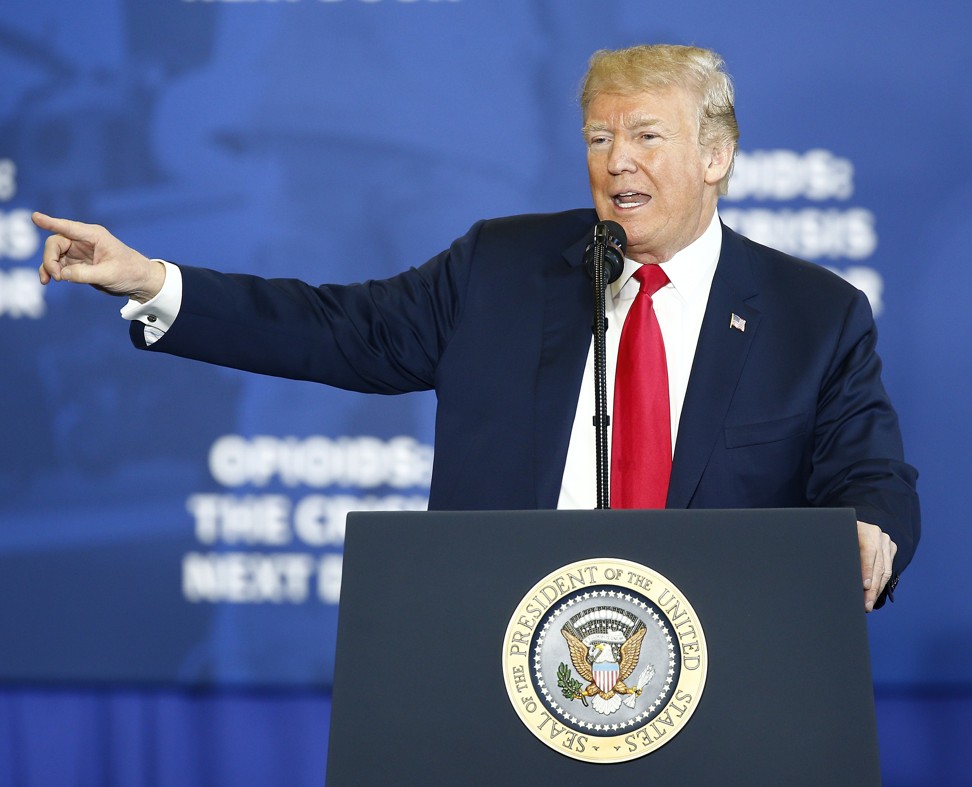
US official set to arrive in Taipei as Washington makes swift use of new Taiwan Travel Act
Alex Wong, deputy assistant secretary of state, expected to meet island’s officials, US business representatives on three-day trip

In a move that looks certain to raise the ire of Beijing, a senior US official was set to arrive in Taiwan on Tuesday, just days after US President Donald Trump approved a travel bill allowing American representatives to meet their counterparts on the self-ruled island.
Alex Wong, deputy assistant secretary of state in the East Asian and Pacific Affairs Bureau, will visit Taipei from Tuesday to Thursday, after holding meetings in Singapore, according to the American Institute in Taiwan (AIT), an NGO established under the auspices of the US government.
During his trip, Wong will speak at the American Chamber of Commerce’s Hsieh Nien-fan dinner – an annual event at which members of the US business community get to mingle with Taiwanese officials – and hold discussions with local authorities on matters of interest to the two sides, the AIT said, without elaborating.
News of Wong’s trip came as the annual meeting of China’s National People’s Congress was wrapping up in Beijing. In his closing speech, President Xi Jinping said that forces leaning towards independence in Taiwan or “any efforts to divide” the self-ruled island would “face the punishment of history”.
The Chinese embassy in Washington said in a statement on Saturday that China was “strongly dissatisfied” with the Taiwan Travel Act, saying it severely violated the one-China principle and the political foundation of the China-US relationship.
Experts on cross-strait relationships said Wong’s visit would be detrimental to ties between Beijing, Washington and Taipei.
“The Trump administration deliberately arranged for the passing [of the travel act] while Beijing’s leadership was busy at the NPC,” said Professor Li Fei, deputy director of the Taiwan Research Centre at Xiamen University in southeast China’s Fujian province.
“Wong’s trip and the bill both come as the US and China are in a stand-off over trade, and that will be a test for Beijing’s leaders,” he said.
The Taiwan Travel Act is the second piece of legislation to be passed on the subject of US-Taiwan relations since Washington severed diplomatic ties with Taipei in 1972 and resumed them with Beijing. The first was the Taiwan Relations Act, which was passed in 1979.
According to the new bill, relations between the US and Taiwan “have suffered from a lack of communication due to the self-imposed restrictions that the United States maintains on high-level visits with Taiwan” since the enactment of the Taiwan Relations Act.
Officials from the US and Taiwan have met on both sides of the Pacific in the years since 1979, but their visits have been generally low key to avoid diplomatic repercussions. The White House said the new bill would pave the way for more high-level official exchanges with Taipei.
Chiu Jian-ming Chiu from the National Taiwan University of Science and Technology said Wong’s visit was clear evidence that the US planned to make use of the new legislation, but said it was yet to be seen how doing so would affect its relationship with Beijing.
“Trump’s administration has implemented the travel act,” he said. “But its impact will be increased if the White House pushes for more departments to put it into practice.”
